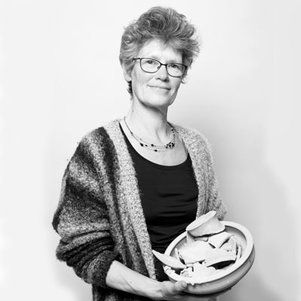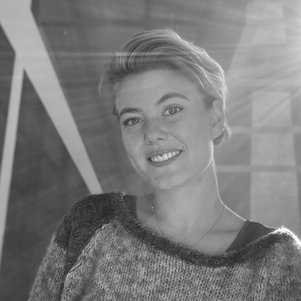Clay is a material with enormous potential that has been used centuries to make everyday objects, from pottery, tableware, tiles and bricks. When clay is fired in a hot air kiln, the material transforms in its definite shape and becomes ceramics. Ceramics comes in three types: porcelain, stoneware and crockery; depending on the purity of the clay and the temperature at which it was fired. There are many different techniques to design ceramics. You can mold the clay with casting clay or use a turning table. The clay objects can then be decorated and glazed after being fired.
The ceramics course teaches you various ceramics techniques. You will work on your own design and there's plenty of room to experiment. You can throw pots on the electric turning table or construct clean-lined, rectangular objects from slabs of clay. Plaster molds and casting clay are also available for producing multiples of your artwork. Following the drying process, your clay creations will be fired at a minimum of thousand degrees Celsius, after which you can make a selection from a wide range of glazes to decorate them. Your work will be finished and ready to use after the second firing
Schedule & enrolment
Teachers

Ellen Rijsdorp
Ellen studied at the school of Arts in Kampen and the Dutch Ceramics Academy in Gouda. Since 1991 she has been working as an independent ceramist.She sells her ceramic objects all over Europe and in China. She has been a teacher in ceramics since 1992 and worked at different organisations like the Dutch Ceramics Academy in Gouda, VAKDelft and X.

Rink Schilling
Rink Schelling is a young designer and graduated from the Willem de Kooning Academy. Her passion lies in ceramics and she makes objects from home-grown clay from the Netherlands. Turning and modelling are her specialities. She works on her projects in her studio in Rotterdam.
Rates
Category 1 - Student
Category 2 - TU Delft employee
Category 3 - Other
You do not need an X-subscription to follow this course. However, you do need an account in our webshop, which yo can create with your NetID. Don't have a NetID? Then drop by X to create an account.
Practical Information
Wear clothing that can get dirty.
Ceramics is open to anyone with an X subscription who has completed one of the above mentioned courses or gained experience elsewhere, at any time when an assistant is present. All you need to do is register at 13:00 the day before the ticket hour will be. The assistant is there to help when needed, to give tips and advice and to ensure that all materials and equipment are used responsibly and safely.
You are welcome to use the techniques, tools and materials that you have been instructed in during the lessons. Clay, glazes, clay slip, pigments and plaster are available for purchase.
Practical Information
| Experience necessary |
| Assistants available |
| Reserve in advance, the day before from 13:00 |
| On Friday from 18:00 until 23:00 and on Saturday from 12:00 until 18:00 |
